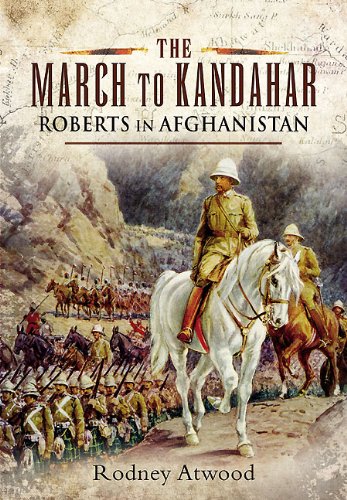
The March to Kandahar: Roberts in Afghanistan PDF
Preview The March to Kandahar: Roberts in Afghanistan
The book describes the role of Frederick Roberts in the 2nd Afghan War, culminating in his famous march in 1880 with 10,000 picked British and Indian soldiers, 300 miles in twenty-three days, from Kabul to Kandahar, to defeat the Afghan army of Ayub Khan, pretender to the Amirship of Kabul. The march made Roberts one of late Victorian England’s great military heroes, partly because of the achievement itself, partly because the victory restored British prestige after defeat, and finally because of Roberts’ astute use of the press to puff his victory. This overcame the earlier damage done to his reputation by the political storm raised by his hanging over eighty Afghans in revenge for the massacre of a British envoy and his escort. It enabled the liberal Viceroy of India, Lord Ripon, to extract his forces from an Afghan imbroglio with prestige restored and an emir on the Afghan throne who for thirty-nine years maintained friendship with British India. Roberts (or ‘Bobs’ as he was known) subsequently advanced to command the Indian Army, working closely with future Viceroys to influence Indian defense policy on the North-West Frontier, being hymned by Rudyard Kipling, poet of empire. His best-selling autobiography, Forty-One Years in India, established his image before the British public and he remains one of Britain’s best known, if least understood, military figures. **
About the AuthorRodney Atwood BA PhD is a graduate of the McMaster University, Canada and Churchill College, Cambridge. He served in the Royal Tank Regiment before pursuing an academic career. While this is his first book with Pen and Sword, he is a published author. He is also a regular contributor to historical journals and a frequent lecturer.
